Have you ever wondered how to start a private practice? Maybe you were wondering about how you would get materials, how you would get referrals, or where to even begin. Today, I’m thrilled to have Nanette Cote on the show to talk all about getting started with a private practice. Don’t forget to check below for the links and resources we mentioned in today’s show.
Links & Resources
- The Digital SLP Membership
- 7 Ways to use Alexa to Increase Speech & Language Skills
- 5 Steps to Use Alexa in Private Practice
- Speech2Me Blog
- Water Works
Full Transcript of Podcast: How to Start a Private Practice
Episode 40: How to Start a Private Practice
Jessica: You're listening to the Speech Space Podcast, a podcast full of tips and resources for SLPs. I'm your host, Jessica Cassity, and this is Episode 40. Hey everyone! Today, we're going to be talking about starting a private practice with special guest, Nanette Cote. Before we get started I wanted to take a brief moment to let you know that this podcast is brought to you by The Digital SLP membership site, which is a site that features time-saving no print and low prep resources for SLPs. To learn more about The Digital SLP membership, please head on over to thedigitalslp.com/digitalslp. I also wanted to remind you that the doors to the digital SLP site are going to be closing on October 31st. So if this is something that you've had your eye on, or you keep meaning to check out and you just haven't had the chance, you're going to want to make sure that if you would like to sign up that you do that before October 31st, after October 31st, the doors will close. And I'm not sure when we're going to be accepting new members again. So again, You can sign up or learn more by going to thedigitalslp.com/digitalslp. So before I bring Nanette on, I just wanted to take a brief moment to tell you a little bit about her. Since 1995, Nanette Cote has provided speech and language services to a pediatric population in early intervention, school, and private practice settings. Her private speech and language practice, Naperville Therapediatrics, is located in her home office in Naperville, Illinois, where she services toddlers through middle school-aged students. She also works with virtual clients in California as an independent contractor for PresenceLearning. In December of 2015, her innovative work with speech and language pool groups is featured in her industry's monthly magazine, The ASHA Leader. Rumor has it that an ebook of lesson plans for speech therapy at the pool is in the works. You can learn more about Nanette's life as an SLP at her blog, Speech2me, and we will make sure that we also link to that in the show notes as well. All right, let's go ahead and bring Nanette on the show. Hi everyone! I just wanted to give a warm welcome to our special guest, Nanette, who is joining us today to talk about starting a private practice. So welcome, Nanette.
Jessica: Thank you. Thank you for having me.
Jessica: Really excited to have you on this show. I don't know if you know this or not, but I actually I'm hoping to start my own private practice someday.
Nanette: Oh good.
Jessica: Yeah! Yes, so this will be a very useful to me, I'm sure as well as all of our listeners. So could you start off by giving some background on your experience as a speech-language pathologist so our users can get to know you a little bit better?
Nanette: Sure, yes! So I graduated with my master's from Northern Illinois University in 1998. So I've been at the game for a little while. A couple of years before that I did work as a speech and language assistant in a couple of different school systems, and that was a great experience. Since 1998, I've been in the early intervention settings. I've worked with a severe to profound day school program and most frequently I probably spent time with the kindergarten to eighth grade students in various school locations. So, at a certain point I was finishing up a contract and just doing like a school year contract at the time. And I decided I wanted to start building a private caseload. So, for me, I didn't want to jump into the private practice world without having some kind of foundation. So I started seeing some clients after school hours and then eventually just got too busy. So I quit my day job and went full-time into private practice.
Jessica: Oh, wow! That's great. I think that's the way to do it too, you know, kind of start slow and build it up. And then when you're ready to kind of jump in, just do it.
Nanette: Yeah. Yeah, and it's worked out so far, I'm going five years strong and I haven't looked back so I haven't needed to go back into the school system or transitioned back to working for a company other than doing some independent contracting. And I'm fortunate because my husband's work has always carried our insurance. So that's been a major benefit for me too, because I cannot even imagine the cost that it would require for me to have my own health insurance under private practice.
Jessica: Right, right, that's a good point. Now, what are some of the perks of being your own boss or working for yourself?
Nanette: Oh gosh, I don't even know where to begin with that. So, so many. So, I like that, you know, I have a home office, so I don't have really any overhead. I can schedule clients so that they come in every like 40-45 minutes, and then in between sessions, I block off about 20-30 minutes to have the next family come in. I like that I can cater my sessions, really, really individualized things because I work one-on-one with all the kids that come to see me and I can dedicate my time because I don't have a caseload of 70 or 80 kids. I've got, you know, under 20 that I'm seeing in my home office and then we'll get into my telepractice work later. But it feels manageable and I don't feel like I'm burnt out. And I honestly, I look at all the social media going on right now about therapists getting back to their school job. And while I loved working in the schools, I just feel their pain for scheduling and management and coordinating. And it's a lot. So I think that's one of the biggest perks that I really just make things work from my own schedule. I don't have to worry about, oh, I need to get back and pick up my son because he's out of school at this time, but I still need to be in work. So all those days were gone. And that makes part of private practice just so much easier as a mom, too.
Jessica: Yes, absolutely. Definitely. It's great to have that flexibility as a mom.
Nanette: Yeah.
Jessica: Yeah. So say someone wants to start a private practice, where do they start?
Nanette: So for me, I mean, I can speak from my own experience and this may not be the best fit for everyone. But, like I said, starting at my home office, where I didn't have any overhead. I don't have to think about parking expenses and clearing lots when the weather is bad. I live out in Illinois, so we have some snowy times here.
Jessica: Okay.
Nanette: I mean, that's been a good fit. The downfall is it's my home. So, you know, I try to keep kids from roaming too much in my personal space and get them to the door right down to the hallway to my office and, try to keep my home life as private as I can and separate as I can from the business aspect. That also requires being a landscaper because I don't want people coming to my front door and things are a mess outside. So I'm constantly trying to manage out there as well. But I feel like the way I went about it would be the way I would repeat, if I had to go back and do everything all over again. I like the security of working with a company or having to set day job, like I said, and then slowly picking up clients after school hours, like I also mentioned to it. It got busy when I got into network with several different insurance companies when we might talk about this a little later on, but I had to make so many calls for different, you know, denials. And I was still figuring things out there and it just became too much to balance both of those jobs. So, as far as like where to start with getting clients, it's really word of mouth for me. And I've done the whole, you know, go to PTA fairs. I've done the booth thing at local mom's club and I have never picked up a client from any of those avenues. I mean, it really got me out there. It got my name out there, but all of my clients, and I honestly don't have a time where I say, "Oh gosh, I'm so bored. I don't have enough to do." It's constant. Even as I'm graduating kids, I've got five more at the door ready to come in, and it all just works out really well. I don't know how I've been getting away with it for five years like that. But word of mouth has been my biggest win when it comes to continuing the caseload. And part of what I do is when I have a family graduate or move, and they're no longer going to continue services with me, I asked them if they wouldn't mind friend requesting on Facebook and different social media sites, because I also joined or, you know, for most of them, you have to ask permission, but I joined many of the local mom's groups. So from time to time, especially at the beginning of the summer and now at the beginning of the school year, other moms in my area will post that they're looking for a speech pathologists. And they're wondering if anybody has a recommendation and then all those families I've worked with that have been happy with my services, start making these great comments about what we've done together. So then I picked up probably four or five clients from those word of mouth clients, and that's all free advertising. I don't have to pay for any of that or spend a Saturday at one of those fairs. And a couple of other things that I've done to build the caseload have been to seek out some local preschools. Private preschools work a little bit easier than those national ones where you can see on every corner. Those, you know, for here, there's like a cornerstone on every corner. But what I did was I went to those private ones and ask them if they would like some free preschool screenings. And typically those preschool directors want them done at the beginning of a school year because they want their kids identified if they need services as soon as possible. So I picked up several clients from going in and just seeing these kids at preschool to do a free like 10-15 minutes screening with whomever is, you know, given me permission to work with their child. And then a lot of those families will follow up with me, they'll call me and say they wanted to set up an evaluation. And then I'll start up services most often if they are eligible. So that has been a really successful thing to do. I'm busy at the beginning of this school year, but it's a good busy, and I'm bringing in the clientele that I need to fill on my caseload in the mornings when I've got all my school-aged kids in school, and I need to get those hours in with another population. And then the last thing that I would recommend would be to network like a mad woman. So, I wasn't afraid to reach out to other folks like me who were maybe running a private practice in their home office or going to families' homes and just connect with them and say, "Hey, would you like to get together and see what my office set up looks like?" And those folks have, you know, for different reasons, they've referred clients to me as well, because maybe they're not in an insurance that work that are referral ones, and you know, and they need the coverage in a certain insurance network. And my colleagues may not have that in network status. So, I've also made it a point to really connect with who I feel is the best OT in this area and the best ENT and the best audiologists. And I've done that research because I want to refer my families to those folks. And I want to collaborate with people that I know we're going to do with our old job. And then they in turn refer me. So that's been another great way to build a caseload. And sometimes I'll get a referral from one of each of those areas all at once, and that's kind of fun. So I know that all that work and all that networking really paid off. And there was one more thing I wanted to mention. And I've been at this game, like I said for about five years, and during that time, I've also been writing a speech and language blog. So I'm the author of speech2me. My husband encouraged me to do that. He's a business guy. And my point in writing the blog is to refer my families to a sense of what my therapy style looks like. It's helped me collaborate with other therapists locally and nationally. And that's been a really nice experience because it can get lonely in the private practice world when you're kind of on your own with your kids all day. And you don't have those connections that you get in different settings like we have in school systems. So the blog has kind of reconnected me there.
Jessica: Yeah, that's great. That's something I would not have even thought about. So that's a really great suggestion. And I love the idea about screening the preschoolers. That's something that I hadn't thought of either, and that's just fabulous. I love that idea!
Nanette: Yeah, and that one, again, my first one, my first gig doing that came through the OT group that I found and collaborated with because their own kids were going to that preschool. And there was a speech pathologist who was performing those screenings and she moved out of state. So they knew that I was working in private practice and that maybe I'd have the availability. And so I've been doing those screenings now, this will be my third year with that location. And then I just started calling. I googled, you know, preschools within 10 miles of my home, and I found one down the street and I happened to catch someone when, and that was in the spring, I was trying to get ahead of the fall. If you wait too long, then I think you lose more opportunities. But if you catch folks at the end of the school year so that you can plan ahead, it seemed to be a better strategy this year. And I haven't tried that before. So I did pick up after, you know, 10 phone calls. I got one more. So to me, that's worth it. You may get 10 rejections or nine rejections in that case. And you get one, it happened to be literally not even a clockable mile away from my house. So that's a perfect little set up.
Jessica: That's great. Yeah. I think a lot of it is kind of about putting yourself out there. You know, like you said, you might get some people who don't respond or aren't interested, but for those that don't, you're going to find others that are interested.
Nanette: Right. You just have to keep at it.
Jessica: Exactly, yes. Now, what about you know, starting a material's library or getting assessments, how do you do that? If you have a very small budget or you're just starting out?
Nanette: So again, something landed in my lap when I first started working in private practice. I got an email from the company ATP, so Academic Therapy Publications, and they were looking for some help with data collection at that time. It was for the tests, the R-E-S-C-A-E, so the RESCA-E, when I say, RESCA-E, I'm not sure how they pronounce that acronym. But it's a receptive, expressive, and social communicative assessment battery, and it's for a young population of kids. So I got the email, they were looking for data collection. The nice thing about being part of something like that is you get to really explore these new tests that are about to come out. You get paid for each subject that you're testing. So it, depending on the level of work required, you'll get paid more if you're doing more work and transcriptions and things like that. And I completed that study. And if you complete so many collections, so I think at the time it might've been, you had to do 10 or 20 subjects over a certain period of time. Then you get that test battery when it comes out. It's yours for free. So that started a nice little domino effect with that company. And since then I participated in data collections with the TAPS-4, and there's another test that's brand new, it's a vocabulary... word association one called the TOSR, T-O-S-R. So I've got that in my toolkit now. And, in addition to, like I said, getting paid for each of the testing studies you're doing, and you can go to your neighbors, you can go to your kid's friends and use those guys as your, you know, testing study participants. I also got all of those tests batteries for free. So not that, you know, having said that it's not like everything's free. So when I was venturing out to doing those preschool screenings, I reached out to colleagues and asked, you know, "What do you guys love for preschool screenings?" And a number of people had recommended the Fluharty. So, I made that purchase. It's a couple hundred bucks, but I figured, okay, I have to make this purchase now. I'm doing free screenings, but then I'll get these kids to come in for an evaluation, and after two or three evals, the test has been paid for. So that was worth the budget. And I also squerged a little bit and bought the self-preschool because then I'd have these preschool kids coming in for a testing, and I didn't have a great language assessment for that age group. So I did purchase those two when I got into the preschool screening, but it's not like I had to have all of these at once. And to be honest, when I first, first started, the only test battery that I had was the OWLS. And that one I think is still somewhere on my shelf and it's expired. But I've also found that I very seldomly need to give tests because a lot of my kids were coming from a school setting and they've already been through much of their testing. So a few of these, other than I'd say, the self-preschool is one I've used quite a bit. I haven't broken open my TAPS-4 yet. And I've given probably that receptive, expressive, social one to about five kids since I got it two or three years ago. So I don't know that you need to have all those assessments on your shelf ready to go, but I would find something that captures like the OWLS is a wide age range in there. So I think you can give it to somebody as young as what, three or four, all the way up to like 50 or 60 years old. So I knew that that would be a good way to start. If I needed to give some kind of evaluation, then I could reach out to a bigger population if I went with the OWLS. And then as far as materials, I use what I have and you know, I have a son who's soon to be 13, but I still have many of his toys from the toddler years. And some are my personal favorites through early intervention years. So I just kept all of those things. I'm a thrift shop girl. So I'll go from time to time to check out different thrift shops for more books or library sales. Sometimes libraries will have a nice collection on sale for a dollar or something, and I'm a TPT shopper. So I turned to my very talented colleagues that have materials out there. I like to shop for sales. If I need something specific in the way of fluency. I usually look there first before I start buying different programs and books. And I find that I end up not using as many of those books, but I use those TPT materials more than anything else. So those have been a great investment. And then for my sensory bins, I liked the Dollar Tree. So I can go in there and buy different felts that are seasonal to go along with different activities that I do in my sessions. And I can keep things sanitary. I can throw those out and I don't feel bad about throwing out that felt that cost me a dollar.
Jessica: That's true.
Nanette: Because His kids were sneezing all over the place or whatnot. So that's been a good way to keep things, you know, lively for the kids too, and functional because we're doing a lot of those seasonal crafts and, and using the sensory bins. So the Dollar Tree is my go-to place for those kinds of things.
Jessica: Yes. Love the Dollar Tree. Could you talk a little bit about insurance versus private pay? I know that you had mentioned in the beginning that you do accept insurance. Could you talk a little bit about why you chose to accept insurance?
Nanette: So I did a little research first and I think, again, this came from my husband because he's the business guy. So he suggested, you know, to look around first at your location, your area. So I never mentioned that when I first got into private practice, we had just moved to Illinois from Massachusetts. I've been in this area a few times for school and such, but we got relocated for my husband's job. So after about a year is when I started to think about getting into private practice. He had me calling just those local clinics to see, or going online, to most of them will post online what insurance networks they accept, or what insurances they accept. So here's the thing, there's a difference between when you call someone and you ask them what insurance they accept and who they're in network with. So those can be two different things. And I didn't know a lot of this when I first started out, but if you're in network, it means you, you know, sweat, bled, and cried over applications and gotten those in. And you're now in network. And I felt as though when I started out, I applied for four different networks because all of these areas, all of my competition around me are taking insurance.
Jessica: Okay.
Nanette: And I'm in a pretty affluent area, but families want, and we do too. We want to use our insurance because it's becoming more and more that you have to use an in-network provider when you go to different doctor's visits for some of these plans. So I felt as though if I didn't get in network, I wouldn't have a caseload. And I did have some families say to me right off the bat, you know, I can't come see you unless you're in network with UnitedHealthcare. So I joined four and I've dropped one every year. So now I'm down to one. And the reason being is, and I've found out through my own experience, that when I assumed families would want to see you or need to see you because you were in network with their insurance, it wasn't always the case. If it's important to someone, they'll find a way to get your services in. And I had to let go of the companies that have such a low reimbursement rate, that it was just consuming too much of my time and financially not viable for me to continue and network with them. And at this point I'm only a network with the one that reimburses as close as possible to what my charges are. So you cannot, if you're in network, you cannot charge families. You can put your charge down, but they'll only reimburse you, insurance will only reimburse you up to what is the allowable charge. And then you cannot turn to a family and say, well, I've already been, I've only been paid this, and now you owe me the difference. It's not legal. So you have to accept that as an in-network provider. So I don't know, that's a hard one for me to answer, because again, if I had to do it all again, I probably would have joined all those networks. I was desperate for meeting clients. Nobody knew me. We had just moved here and it took a while to get that word of mouth thing going, you know, and I only had three or four clients just start it with. And I was really working for those families and they became some of my best referral sources, so that paid off, but it's not right away. So I don't know, really depends on the area you're in. And, moving forward, I'm not going to try to get back into network with anybody. I feel like I'm in a good place. And I'd like to just keep maybe the one that's what I'm saying today. I don't know what I'll say, six months from now, but the majority of my clients do have insurance with that one company. So I haven't lost people because I've only eliminated the ones where I maybe have had a handful of clients in each of the other groups. So, and you can keep in mind too, for now, there are some, not many, but there are some companies that will allow you to charge as an out-of-network provider. So there's a different set of regulations, but, you know, for awhile, for example, Cigna allowed that. So they were letting me bill as an out-of-network provider. I was getting my full reimbursement, but I wasn't getting, the family was paying, you know, probably a little more on their deductible, things like that. Now Cigna will most often tell my local families that they won't cover out-of-network because they have enough in-network providers in this area. So that's the tricky thing. And you can try to do a little research on that end to find how like, I know Blue Cross right now is saying that it's my personal insurance one and we are no longer covered for out-of-network providers. So we have to see Blue Cross providers if we want to use our insurance, but that's an option. So there may be some insurance companies that you don't have to run into network status with because you might be able to bill as an out-of-network provider for them. So it just takes a little research on that end.
Jessica: Yeah. Now, do you think that there ever might be a situation where it would be realistic for someone starting off to only take private pay?
Nanette: It could be. I've heard of people doing that. You know, I've got colleagues that I've met through blogging that do just that. And again, I think it gets back to what your area's like, what your location's like, if people are willing to do that. My big fear again, was that I saw all the competition around me who have great reputations too. It's not like I was really competing against these longstanding groups. I think the only thing that separates me from those practices is, again, you get like a very relaxed setting when you're coming into someone's home office, you get my private attention. I'm not ever going to assign a family to another therapist because it's just me. So I think people liked that continuity of care. So I can use that as my leverage. But, you know, if you're thinking about branching out and getting into a clinical setting, it depends on what your preferences. But if, if I were to move into a site where I was looking to hire other therapists and be in a clinic, I don't think I would have much of a choice in my area. I think I would have to be in network with at least a couple of different companies. So being in the home office, I have the luxury of saying, "Nope, I don't want to be in that one anymore." So, and it's not easy to get out either. It takes... oh yeah. It takes about 90 days and that's from when they process. So it could take three, four months to get out of network. So it's still something that takes a while to get through.
Jessica: Okay, and I noticed the way I was phrasing it, maybe it was incorrect. So I should be asking if you're in-network versus accepting insurance. Is that right?
Nanette: Right. Yeah. I would make sure that you understand the difference there before you make those calls to find out. And again, it's a matter of, like I said, some insurance companies will accept out-of-network claims, but broad provider, but others won't. So if you go to a website and the "ABC Speech Group" has a list of insurances that they accept, I'm doing little air quotes. That means that maybe they're billing out-of-network for some those, it doesn't mean they're in-network. So you make a call to that office and ask them, "Are you in network with Cigna?" Or "Are you in network with Aetna?" Then, you'll get a better sense of which ones, you know, they're network with that way.
Jessica: Right, and that is important because the coverage amounts are usually very different for in-network versus out-of-network, so...
Nanette: And yeah, their deductibles are different. So it's usually a higher deductible for the family. And then the percentage covered is very different between in-network and out-of-network. But for some of my families, you know, they've said as long as they're still taking out-of-network, we'll do it. We'll stick with you. And we'll use it for the out-of-network coverage, but it's not great.
Jessica: Okay, and I know you touched on this a little bit before, but how do you stay connected with other SLPs when you're working solo day to day?
Nanette: So a couple of things I've done again at the beginning of this school year, I encouraged the families that I work with to sign releases with their schools so that I can communicate with the school speech pathologist. And I try to attend where I can and it's not every year, but especially for my very involved clients or brand new clients, I try to attend the annual IEP meeting. And that helps me kind of get the face-to-face contact with the team. If I've already reached out to those speech paths and we've connected through email, then they usually include me in goal writing or they'll come up with some goals and they'll email me. And then we'll kind of collaborate together via email so that when we come to the meeting, I've even had a chance to help write some of the goals for the kids that we mutually share. I've also been invited or not always invited. If I have a client that is going through some of assessment for AAC, I've been invited to go to those meetings by the family. So... families can invite anybody they really want to those types of meetings. So I've been fortunate to get to those. And not only that in our district, they provide free trainings for many devices. So I've gone in and even received continuing at our spam learning how to use the NovaChat and Accent and things like that. So again, I'm running into those same speech paths that I saw at the meetings or we've connected through emails. I think I mentioned before, write a blog. That's really helped me connect with some of my friends that I've never met face-to-face. And we're kind of getting excited with ASHA coming up in Boston this year that maybe we'll be able to meet more folks that I've only known virtually. I've joined some Facebook groups and they can be a little time consuming once you get into different discussions, but it's still been another way to, if I'm looking for materials, especially. So if I have a client that I'm starting with and I want some fresh ideas for fluency, I'll go to one of the Facebook groups that I'm in as a blogger. And I think it's something like SOP Bloggers and TPT Sours. So I'll go into that group and say, does anybody have a good resource for fluency? And I ended up finding some great things that way. And then the last thing, like I've mentioned before, was invite those folks around you to come visit your home office or come see your space or take them out for coffee. And I think we initially might feel like everybody's your competition and you should be careful about what you let people in on and don't share too much, or maybe that's East Coast mentality because that's where I grew up. But Midwest has been very different and it's always been very open door. Everybody really just wants to help each other out. And again, I never thought going into it. If I befriended those other, you know, SLPs in private practice, that they would be referring people to me, you know. I've even noticed going back to when I said, I have those former clients "friend" on Facebook. And then if they make a comment, if another family is looking for a speech therapist, I've even gone into those threads and found other people commenting if they have a private practice afterschool hours or whatever, I've messaged them and said, "Hey, you know, welcome to the area. I work on this side of Naperville." And recently, that was last November when I reached out to one person and a week ago, she sent me an email and she said, "Hey, are you taking new clients on fall?" And this family really wants somebody in network with Blue Cross. So it took a year, but it came back around. So I reached out to her and did a little networking. We didn't get a chance to meet. And then she referred someone to me, so, and vice versa. If I were full, I told her that I'd send somebody her way. I'd rather send someone to another private practice person, than send them to a big group where they could be on a waitlist. You know, if somebody else has the ability to see that client a little sooner then I'll give families different options like that. So I think those have been the ones that have paid off most, for me. It keeps me in touch with folks in the community and especially the school system. I think it's really important to stay connected and help families, you know, understand that bridge between what happens in the clinic space and what's going on in the school space. And I've gotten a lot of great ideas from going into the school setting and sitting in those meetings and great advice for, you know, things that I can do in the private practice world that will help the kids that we're working with. So it's helped me not feel so lonely here.
Jessica: Yeah. Those are some great tips. I mean, I think the online world kind of changes everything, you know. I imagined that, you know, 20 years ago it was probably very different if you're a solo practitioner.
Nanette: Definitely.
Jessica: Yeah. One last thing that I wanted to touch on before we wrap up is that I was looking on your blog and I saw a post about using Alexa in private practice. And I wanted to see if you could talk about that a little bit for our listeners.
Nanette: Okay. So for right now and probably more so in the last couple of weeks, I tend to set an alarm so that I know when the end of my session is coming near. I don't like to wear a watch. I don't like to keep looking down at my watch during a session, but I'll set in an alarm. And then, and I don't want to say her name because then she's in the room here. She'll start talking to me in the background. And I'll end up being the person that will tell her that it's time to turn the alarm off. Well, I've got even my two-year-olds now saying it. So they hear the alarm going off and they're learning to pause because you need to pause or she doesn't pay attention. She keeps sounding the alarm. So you have to say your name and then you have to say the command. And I also use it when, you know, for example, I have a kid that throws herself on the ground and she needs that break desperately because I asked her to put a sticker on a paper and it's just too much to handle. So she's on the ground and she's losing it. And apparently she needs a break. So I will tell my device to set a timer for one minute. "Okay, you have one minute and then we'll go in and get back to work. So take that break." And then they hear it and it worked. Those kids get back up, they've regrouped themselves. They just needed that little break and I've even used devices so my non-verbal kids have either type the name or I say the name. And then they go to the core word list and they type the command in, or they hit the button for off. So that works. It still shuts the timer and transitions off and they get a huge kick out of that because it's so rewarding to use your device to make that happen.
Jessica: Right.
Nanette: We have dance breaks, I'm a dancer. So I have linked my account to Pandora and I put some kids channels on there, like Wheels on the Bus and things like that. So...
Jessica: That's such a great idea! I love it!
Nanette: I have a dance break in there. Now, you don't always get what you want. So if a kid really wants to hear this song, it's my Pandora, it may not have Wheels on the Bus. It may start with something like Mary Had a Little Lamb or something, but they get over it pretty quickly. And because I knew ahead of time, what we would be talking about and your interest in Alexa, I have a blog post this week and I did it in preparation for this podcast. So I researched a bunch of different ways. I just went into Amazon and I looked up all the popular and new, and back to school applications you can use with mindset the dot. So I have a dot.
Jessica: Okay.
Nanette: And I reviewed seven of them. So if you go to my blog, it's the top post right now. And the title of it is Seven Ways to Use "Her" [Alexa] in preparation for this podcast. So the ones that I review are some that I've heard of, some that I've never heard of, but I played around with Tricky Genie. And I love that one! So much fun! It's a great little activity for problem solving, probably higher level elementary aged kids could use that one.
Jessica: Okay.
Nanette: You you can play Heads Up on it too. So that's a fun one. I found an animal game. So you think of an animal and then she [Alexa] ask you yes/no questions about it. And then you wait to see if she [Alexa] can guess the animal you're thinking of. And I was just maybe a little too excited that she [Alexa] gets three of the animals.
Jessica: Yeah, that's amazing.
Nanette: So working on descriptive vocabulary, things of that nature, and if your kids need help, then you can have those things written out in front of you. You can put your Venn diagram about, you could do a graphic organizer to help them know what questions they should be asking or give them the support psych you need. I've also found the game, Guess My Name, that one's kind of tricky. I found a Would You Rather, and they've got a Harry Potter version in there. So we're big Harry Potter fans here and they keep all the language Harry Potter-friendly. So though, talk a little bit about the question and then they'll make some kind of commentary that has to do with something from Harry Potter, you know, or some kind of reference to it. And then the other one that I've talked about in the review is vocab builder. And that one is probably a little bias. That's more for kids who are like my son, thinking about high school in a couple of years, and it prepares them for taking those SATs and things like that with a couple of vocabulary quizzes a day. So I think they do five words and they give you the word and they ask you to pick a synonym and they'll give you three choices. So they're hard vocabulary words. I tried them. So I wouldn't use them in my practice necessarily, but I'd use them with my son to help him build his vocabulary knowledge for those tests that are coming up in the next few years for him. So, but I would check out Tricky Genie. That's my favorite one. That's the first one that I talk about and when I'm bored, I've been playing it too, because I just, I find it to be so entertaining. So, and oh the other one I didn't mention was the Magic Door. And a lot of folks have heard of that before. And it's really just, I think, a nice way to work on fluency or articulation carryover because they give you kind of like, Would You Rather. They give you an option in this mystical land, whether you should go look at this sign or take this path to something out. And then in the review that I wrote about it in the blog, I listed every possible options that they give you. So you can see all the different articulation targets that you could work on. So you would have to pick and say those out loud. And I thought that might be a nice way to work on articulation at a higher level. And then you could always shut things down and talk about what else do you think you would see down that path and where do you think that would lead you to and what would happen next? So nice way to kind of expand when you've got kids at that conversation level, working on their articulation. So I thought that was a really good option as well, but check it out. So that's a fun post about new ways that... I haven't started using all of them in practice this yet. I just wrote it and I think posted it on Tuesday. So bring some of them to more practice in my sessions. But yeah, there are bunch of great ideas in there. Yeah.
Jessica: Yeah. We'll definitely make sure that I linked to those in the show notes so everybody can access that article. So is there anything else that you'd like to tell our listeners that we haven't touched on today? I know we covered a lot of really great stuff. Anything else?
Nanette: Yeah, I think that's the bulk of what I recommend really, when folks ask me, you know, how do I get started, which they do? What about materials? The one other thing that I didn't talk about is I do have a dog. He is not trained in any way, shape or form to be a clinical dog or therapy dog, but he is a great way for me to get kids to transition. So my husband was very good about when we got the dog a few years ago, getting these really nice gates for our living spaces. So I've got a gate to our front living room when you walk in the door. That's up, the dog never goes in there, but neither do my kids because the gates there. So they don't take off to that side. And then as you come through from the front door, you'll see my kitchen and off to the back is our family room. So there's another gate there and that's where I keep Gryffindor. So you're probably not surprised the dog is a Harry Potter name. So we call him Griff and most kids, except for those kids that might have a little bit of a fear of dogs, really enjoy giving him a treat. So I have a special container of just small treats for the dog because they don't want the dog to get too many of those giant ones during the day. And I teach kids when they're done. If they feel comfortable, they can go into the kitchen area where the cabinet is for the dog treats and they can get the treat out and give him one. And it's been a nice way to help those kids who don't want to leave my therapy room goes to the dog because the dog always trumps me. They always want him to sit and catch the tree. And most of them don't even hand them the treat, they toss it up in the air and he'll catch it or they'll throw it, or they'll ask him to sit, you know, and it's a nice way to get those kids that are kind of quiet to tell the dog to be quiet if they come into the session and the dogs yelling, they can just yell over her low to him or high, but the dog is so trained. He knows when he hears my office door open, that he's going to get his treat. So he's usually sitting right at the gate ready for reward. But that's been a nice way to help those kids that really struggle with transition. And I find that a lot of them, whether they're preschool or school age, they just have a hard time with no matter what you do. If you've got your picture, schedule up for your session, or you've got the alarm going off telling them at end, they still don't want to stop playing. You know, for the most part, they like to stay. They like to continue. They don't want to end their free play opportunities if we're on that. And so having the dog has really helped quite a bit. And for safety purposes, for both of them, I like to keep him on the other side of the gate. I know he won't jump it, but it's a good way for them to work on greetings too, because they'll always say hi and bye to that dog. And that's been a success for a lot of my kids working on their social skills too.
Jessica: Yeah. That's such a great tip for any SLPs out there that have a pet.
Nanette: But you don't have to get one.
Jessica: Of course, of course not. All right. Well, Nanette, thank you so much for joining us today and sharing your words of wisdom about starting a private practice.
Nanette: Sure. Thank you so much. This has been fun. I appreciate you having me.
Jessica: No problem. I hope that you enjoy listening today. It was such a pleasure to have Nanette on this show and don't forget to check the show notes for all the lovely links that she shared with us today. As always, if you like what you heard, please take a second to give a five-star review on iTunes to help your fellow SLPs find this show. I also wanted to remind you to head on over to thedigitalslp.com/digitalslp if you wanted to sign up or learn more. So that is it for today. I thank you for tuning in and hope that you have a wonderful week.

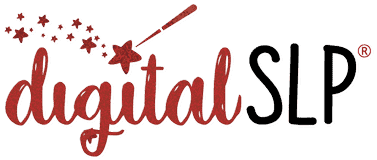
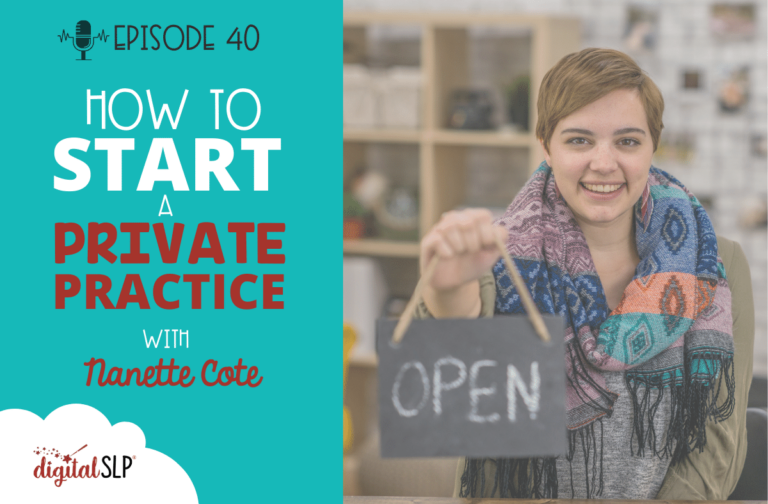
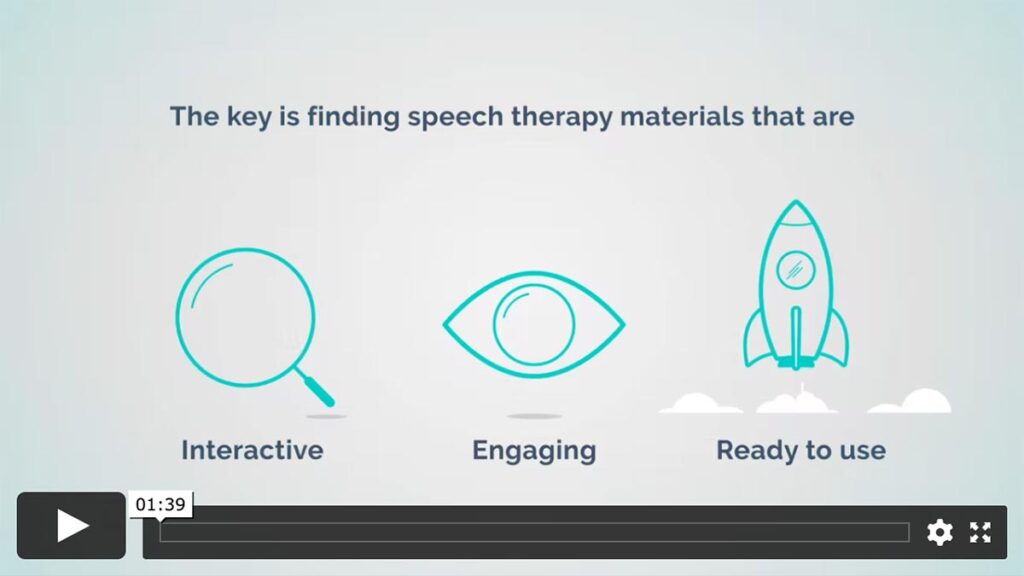
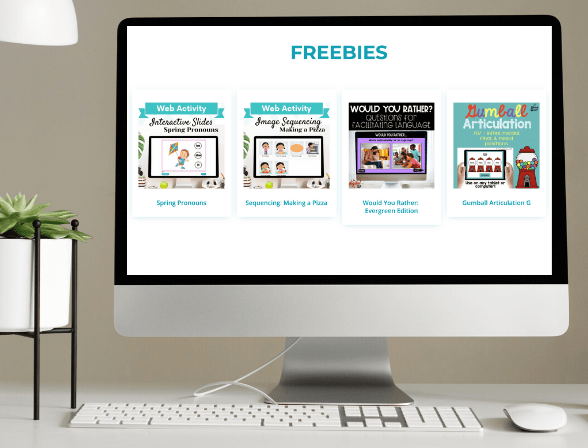

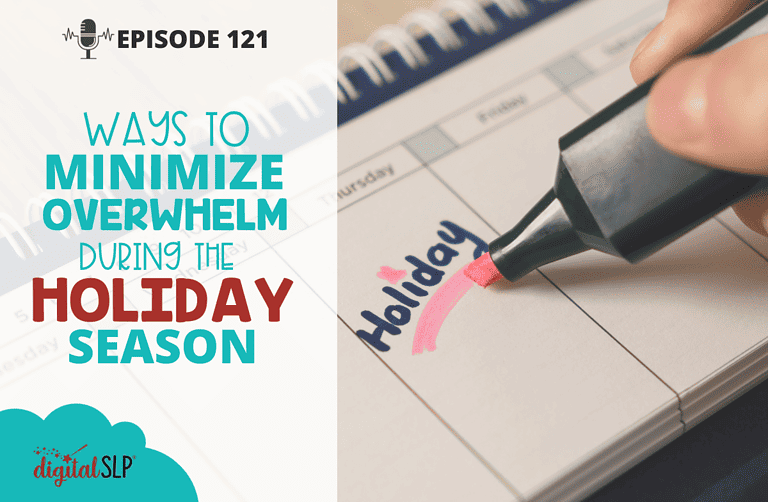

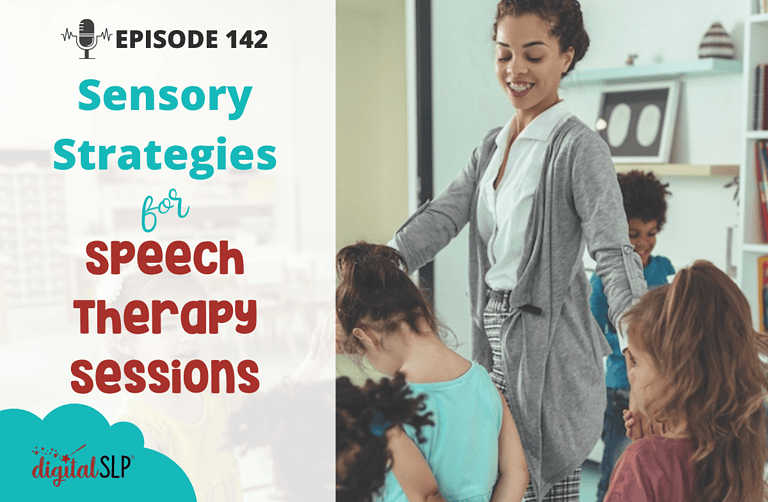




Recent Comments